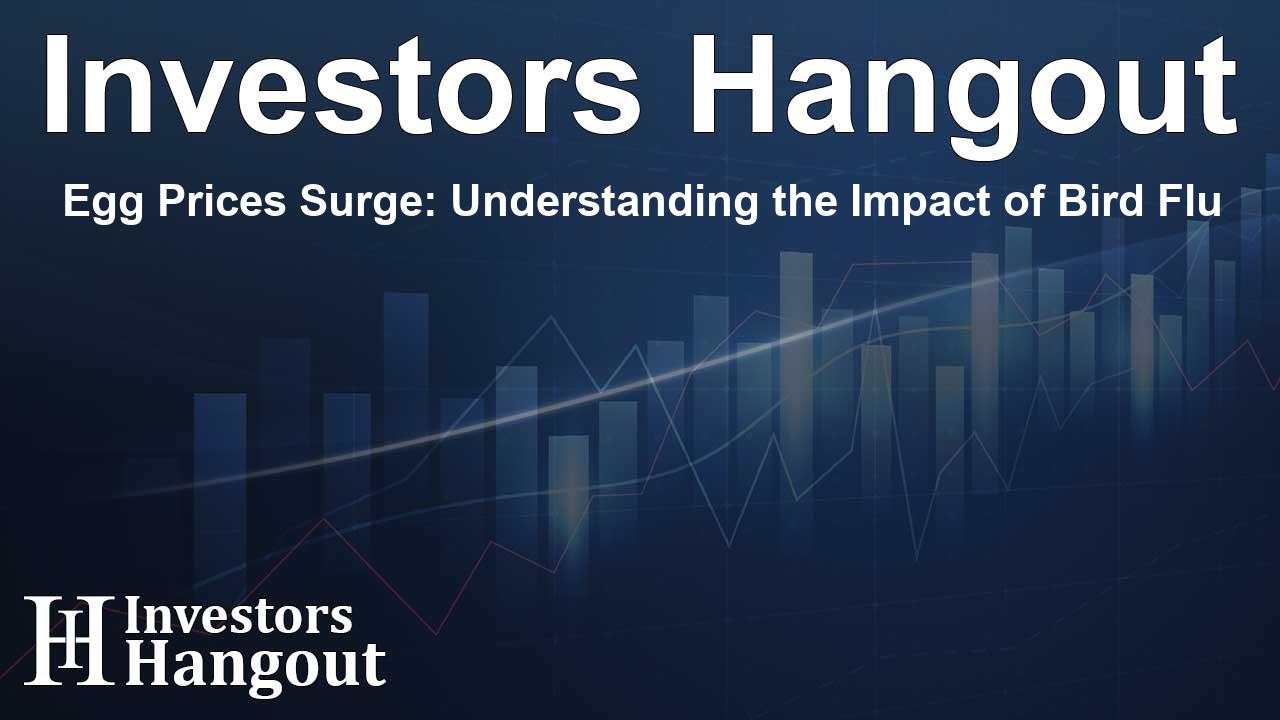Egg Prices Surge: Understanding the Impact of Bird Flu

Key Insights on Inflation and Egg Prices
Recent economic reports have highlighted an increase in annual inflation, which has risen to 3.0%. This uptick from the previous rate of 2.9% indicates a persistent pressure on consumer prices. A notable contributor to this rise in inflation has been the significant increase in shelter costs, which alone has accounted for almost one-third of the overall inflation spike.
The energy sector has also felt the heat, with prices jumping by 1.1% primarily driven by escalating gas costs. However, the most striking development impacting food prices has been the bird flu outbreak, leading to a dramatic 15.2% surge in egg prices, marking the highest increase in almost ten years and pushing the annual price hike to 53%.
The Effects of Bird Flu on Supply Chains
The avian flu crisis has wreaked havoc on poultry operations, leading to the culling of millions of egg-laying hens. This drastic measure was taken to halt the virus's spread, resulting in a sharp decline in egg availability. Consumers are now feeling the ramifications, facing both increased prices and sporadic shortages at grocery stores.
This issue of supply shortages has intertwining factors contributing to the inflation of food prices. In addition to the bird flu's effects on egg production, ongoing supply chain disruptions and rising production costs have worsened the situation. These elements combined have created a volatile market for eggs, a staple food item for many.
Nonetheless, industry experts suggest that the extreme price hikes may be temporary. If bird flu outbreaks are contained and supply chains stabilize, we can expect a leveling off in egg prices, reducing inflationary pressures in the food segment.
Federal Reserve's Response to Current Economic Climate
Meanwhile, the Federal Reserve is closely monitoring these developments. The Chairman of the Fed is set to deliver a semi-annual testimony to Congress, a key moment that might influence interest rate expectations among investors. In conjunction with these testimonies, the Fed releases its Monetary Policy Report, which provides insights into their strategic approach amidst fluctuating economic conditions.
During his upcoming testimony, it is anticipated that Fed Chair Powell will exercise caution regarding speculation on trade policies and tariffs. He is expected to shed light on how tariffs affect businesses and consumers differently, stressing the complexity of these economic variables. While tariffs can increase operational costs, determining who ultimately bears this cost can be ambiguous.
Powell has advocated for maintaining higher interest rates for an extended period as a measure to combat inflation trends. Given the latest inflation data, it seems unlikely the Fed will lower rates before summer. Historically, Powell's comments have been known to stir market reactions, often leading to increased optimism that could inadvertently escalate inflationary pressures.
Anticipating Future Rate Adjustments
Fed's Potential Approach to Interest Rates
Market analysts predict that the Fed might only consider rate cuts well into the summer, reflecting careful consideration of economic signals. Various economic factors will play a crucial role in this decision-making process, including corporate profits, economic growth, and the overall health of the job market.
In this landscape, while market sentiment appears buoyed by recent positive endorsements, a note of caution is warranted. If inflation continues to rise unexpectedly or geopolitical developments create economic uncertainties, we might see a shift in the Fed's approach, potentially resulting in a more gradual reduction in interest rates than what current market conditions suggest.
In summary, while the economic outlook for industries like poultry may improve as conditions stabilize, vigilance regarding inflation trends and their broader implications remains essential for both consumers and businesses alike.
Frequently Asked Questions
What caused the recent spike in egg prices?
The surge in egg prices is primarily due to a bird flu outbreak that led to the culling of millions of hens, drastically reducing the supply.
How has the Federal Reserve responded to rising inflation?
The Fed is likely to maintain higher interest rates longer to combat rising inflation, with rate cuts possibly not occurring until the summer.
Will egg prices remain high in the future?
Experts suggest the price surge may be temporary if the bird flu is contained and supply chains improve.
What impact do tariffs have on inflation?
Tariffs can increase operational costs for businesses, but the exact impact varies depending on how these costs are passed on to consumers.
How does rising inflation affect consumers?
Rising inflation erodes purchasing power, causing consumers to pay more for everyday items, including food and energy costs.
About The Author
Contact Addison Perry privately here. Or send an email with ATTN: Addison Perry as the subject to contact@investorshangout.com.
About Investors Hangout
Investors Hangout is a leading online stock forum for financial discussion and learning, offering a wide range of free tools and resources. It draws in traders of all levels, who exchange market knowledge, investigate trading tactics, and keep an eye on industry developments in real time. Featuring financial articles, stock message boards, quotes, charts, company profiles, and live news updates. Through cooperative learning and a wealth of informational resources, it helps users from novices creating their first portfolios to experts honing their techniques. Join Investors Hangout today: https://investorshangout.com/
The content of this article is based on factual, publicly available information and does not represent legal, financial, or investment advice. Investors Hangout does not offer financial advice, and the author is not a licensed financial advisor. Consult a qualified advisor before making any financial or investment decisions based on this article. This article should not be considered advice to purchase, sell, or hold any securities or other investments. If any of the material provided here is inaccurate, please contact us for corrections.
